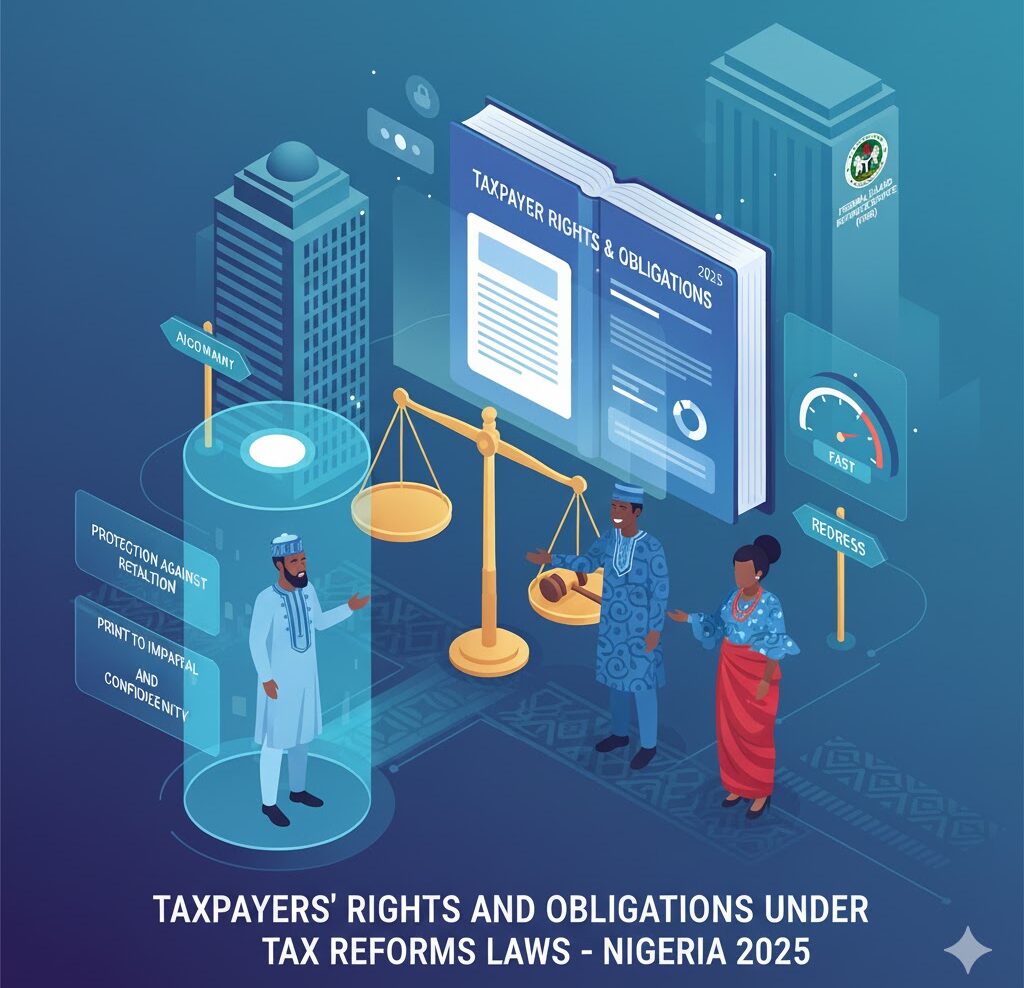Here’s a rewritten version of the legal insight article:
Taxpayers’ Rights and Obligations Under Nigeria’s 2025 Tax Reforms: A Comprehensive Analysis
The landscape of Nigerian taxation is undergoing a significant transformation with the introduction of the Tax Reforms Laws, 2025. This landmark legislation, comprising the Nigeria Tax Act (NTA) and Nigeria Tax Administration Act (NTAA), establishes a new framework balancing taxpayer protections with compliance obligations.
A Modern Framework for Tax Rights and Responsibilities
The reforms build upon Nigeria’s constitutional guarantees while introducing contemporary protections aligned with international standards. Unlike previous scattered provisions, the 2025 reforms create a more cohesive system of taxpayer rights alongside clear obligations.
The legislation defines taxpayers broadly to include individuals, companies, partnerships, communities, and trustees generating taxable income or conducting economic activities in Nigeria. Notably, the definition now encompasses entities whose effective management is in Nigeria, regardless of incorporation location.
Key Rights Under the New Regime
The reforms codify several fundamental taxpayer rights:
– Right to Information and Fair Hearing: Taxpayers must receive clear information about tax laws and have opportunities to be heard in disputes – Privacy and Confidentiality: Enhanced protections for taxpayer data and business information – Quality Service: Guaranteed access to professional tax administration services – Appeals Process: Multiple channels for challenging tax decisions, including the new Tax Ombuds office – Refund Rights: Clearer processes for recovering overpaid taxes within 90 days
Core Obligations for Taxpayers
The legislation also establishes clear taxpayer duties:
– Registration and Filing: Mandatory registration for Tax ID and timely submission of returns – Accurate Reporting: Complete and honest disclosure of income and relevant information – Record Keeping: Maintaining proper books and documentation – Cooperation: Allowing authorized access to records during audits – Notification: Informing authorities of relevant business changes within 30 days
The Role of the Tax Ombuds
A significant innovation is the establishment of the Tax Ombuds office under the Joint Revenue Board Act, 2025. This independent body will: – Investigate complaints against tax authorities – Mediate disputes – Promote taxpayer rights awareness – Monitor fiscal policy impacts
Implementation Challenges
Despite these advances, several challenges remain:
1. Technical capacity gaps, especially for small businesses 2. Data security concerns with expanded information requirements 3. Limited judicial oversight of enforcement actions 4. Need for greater transparency in revenue utilization
Moving Forward
For successful implementation, key stakeholders must take specific actions:
Taxpayers should: – Ensure immediate compliance with new digital requirements – Maintain comprehensive documentation – Actively participate in education programs
Tax authorities must: – Invest in institutional capacity – Provide clear implementation guidance – Strengthen data security protocols – Enhance transparency in revenue management
The 2025 reforms represent a significant step toward a more balanced and efficient tax system. However, their success will depend on sustained commitment from all stakeholders to uphold both rights and responsibilities in practice.







Leave a Comment